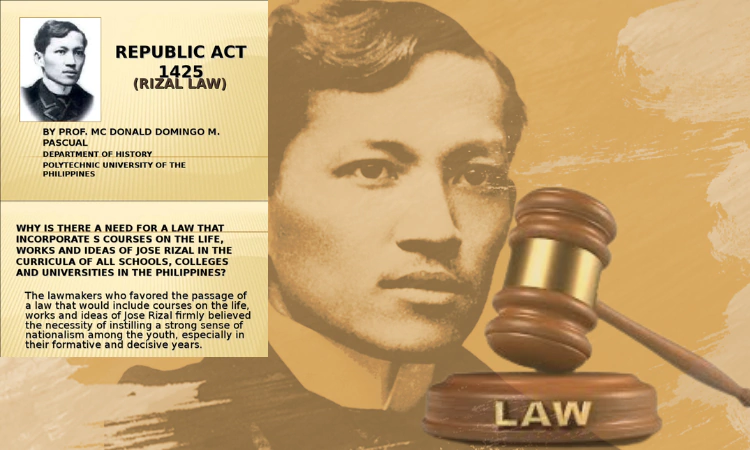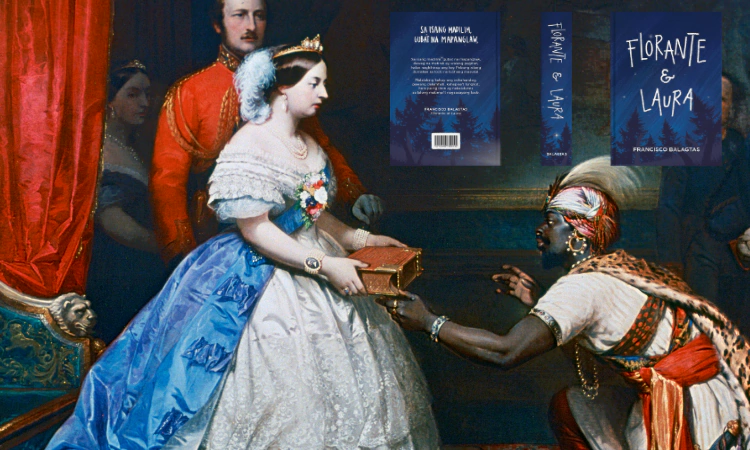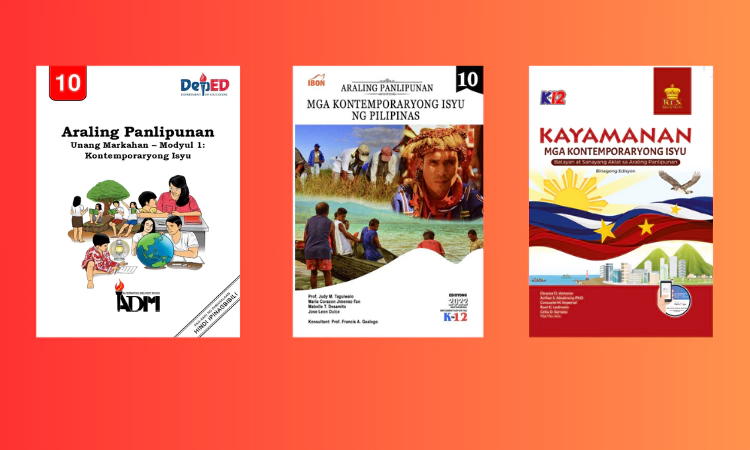Besides being the national hero of the Philippines, Dr. Jose Rizal was also known through time as the ‘First Filipino, ‘The Greatest Malayan’, and ‘Pride of the Malayan Race’, among others.
Many considered him a patriot, a genius, a master of all trades, a model brother, and an ideal son.
Active efforts to promote Rizalist values and culture are being made by the government, as well as Rizalist groups to encourage personal discipline, civic consciousness, and good moral character.
Republic Act 1425 – the Rizal Law – requires schools, colleges, and universities (both public and private), to include in their curricula the study of Rizal’s life and works, particularly his two novels:
Noli Me Tangere and El Filibusterismo, to instill into students the ideals of nationalism and freedom.
In this article, we discuss everything you need to know about the Rizal Law, and why it’s important for Filipinos to study their life and work.
Rizal Law Description
Republic Act 1425 – the Rizal Law – requires schools, colleges, and universities (both public and private), to include in their curricula the study of Rizal’s life and works, particularly his two novels: Noli Me Tangere and El Filibusterismo.
Below is a full transcript of the Rizal Law.
REPUBLIC ACT NO. 1425
AN ACT TO INCLUDE IN THE CURRICULA OF ALL PUBLIC AND PRIVATE SCHOOLS, COLLEGES, AND UNIVERSITIES COURSES ON THE LIFE, WORKS AND WRITINGS OF JOSE RIZAL, PARTICULARLY HIS NOVELS NOLI ME TANGERE AND EL FILIBUSTERISMO, AUTHORIZING THE PRINTING AND DISTRIBUTION THEREOF, AND FOR OTHER PURPOSES.
WHEREAS, today, more than any other period of our history, there is a need for a re-dedication to the ideals of freedom and nationalism for which our heroes lived and died;
WHEREAS, it is met that in honoring them, particularly the national hero and patriot, Jose Rizal, we remember with special fondness and devotion their lives and works that have shaped the national character;
WHEREAS, the life, works, and writing of Jose Rizal, particularly his novels Noli Me Tangere and El Filibusterismo, are a constant and inspiring source of patriotism with which the minds of the youth, especially during their formative and decisive years in school, should be suffused;
WHEREAS all educational institutions are under the supervision of, and subject to regulation by the State, and all schools are enjoined to develop moral character, personal discipline, and civic conscience and to teach the duties of citizenship; Now, therefore,
SECTION 1
Courses on the life, works and writings of Jose Rizal, particularly his novel Noli Me Tangereand El Filibusterismo, shall be included in the curricula of all schools, colleges, and universities, public or private:
Provided, That in the collegiate courses, the original or unexpurgated editions of the Noli Me Tangere and El Filibusterismo or their English translation shall be used as basic texts.
The Board of National Education is hereby authorized and directed to adopt forthwith measures to implement and carry out the provisions of this Section, including the writing and printing of appropriate primers, readers, and textbooks.
The Board shall, within sixty (60) days from the effectivity of this Act, promulgate rules and regulations, including those of a disciplinary nature, to carry out and enforce the provisions of this Act.
The Board shall promulgate rules and regulations providing for the exemption of students for reasons of religious belief stated in a sworn written statement, from the requirement of the provision contained in the second part of the first paragraph of this section; but not from taking the course provided for in the first part of said paragraph.
Said rules and regulations shall take effect thirty (30) days after their publication in the Official Gazette.
SECTION 2
It shall be obligatory for all schools, colleges, and universities to keep in their libraries an adequate number of copies of the original and unexpurgated editions of the Noli Me Tangere and El Filibusterismo, as well as of Rizal’s other works and biography.
The said unexpurgated editions of the Noli Me Tangere and El Filibusterismo or their translations in English as well as other writings of Rizal shall be included in the list of approved books for required reading in all public or private schools, colleges, and universities.
The Board of National Education shall determine the adequacy of the number of books, depending upon the enrollment of the school, college, or university.
SECTION 3
The Board of National Education shall cause the translation of the Noli Me Tangere and El Filibusterismo, as well as other writings of Jose Rizal into English, Tagalog, and the principal Philippine dialects;
cause them to be printed in cheap, popular editions; and cause them to be distributed, free of charge, to persons desiring to read them, through the Purok organizations and Barrio Councils throughout the country.
SECTION 4
Nothing in this Act shall be construed as an amendment or repealing section nine hundred twenty-seven of the Administrative Code, prohibiting the discussion of religious doctrines by public school teachers and other persons engaged in any public school.
SECTION 5
The sum of three hundred thousand pesos is hereby authorized to be appropriated out of any fund not otherwise appropriated in the National Treasury to carry out the purposes of this Act.
SECTION 6
This Act shall take effect upon its approval.
Approved: June 12, 1956
Rizal Law Benefits: Why Study Rizal
So, why is it so important for Filipinos to study the life and works of Dr. Jose Rizal? What benefits can you gain? What relevance does Rizal have in education?
The answer to such questions can be summed up in two points:
Because it is mandated by law.
The teaching of Dr. Jose Rizal’s life, writings, and works is mandated by Republic Act 1425, also known as the Rizal Law.
Senator Jose P. Laurel, the person who sponsored Republic Act 1425, said that since Rizal was the founder of Philippine nationalism and has contributed much to the current standing of this nation, it is only right that Filipinos know about and absorb the great ideals for which he died.
The Rizal Law, enacted in 1956, seeks to accomplish the following goals:
- To pay tribute to our national hero for devoting his life and works in shaping the Filipino character
- To rededicate the lives of youth to the ideals of nationalism and freedom, for which our heroes lived and died
- To gain an inspiring source of patriotism through the study of Rizal’s life, writings, and works.
- Because of the lessons contained within the course itself.
Aside from the abovementioned reasons, there are other benefits to teaching the Rizal course in Philippine schools:
- To recognize the importance of Dr. Jose Rizal’s teachings and ideals about present situations and conditions in society.
- To foster an appreciation and deeper understanding of everything that Rizal fought and died for.
- To encourage the understanding and application of such ideals amid today’s personal and societal issues and conditions.
- To foster the development of the Filipino youth in all facets of nationalism and citizenship.
Views and Opinions About Studying Rizal in School
Below are people’s views and opinions about studying Rizal in school.
“Knowing the life of our hero is knowledge on how to be Filipino!” – Anonymous
“Pagmamahal sa bayan habang naghahandang pumasok sa workplace ang layunin ng rizal course. Halos nawala na ang nasyonalismo sa maraming kabataan, o sa maraming mamamayang pilipino.
Kaya may illegal logging, destructive mining, human trafficking, drug pushing, etc. Dahil halos nawala na ang malasakit sa bayan at sa mga kababayan, in the name of money and self-serving interests.
Iginigising sa puso at isip ng mga kabataan ang diwa ni rizal na bagamat hindi perpekto bilang isang tao ay nagsakripisyo at nag-alay ng buhay alang alang sa kapakanan ng mas nakararami.
Dapat ituloy ang kurso tungkol kay rizal at pag-aralan kung paano ito mapagiging mas epektibo.” – Nomee Canlas
“Suggestion ko lamang. Ipabili nalang yung libro about rizal, basahin at isapuso. Di na kailangan pang gawin itong scheduled classes, kung di naman related sa ating kurso.
Nakakasayang lang ng oras. Tayo lahat ay isang bayani sa ating sariling paraan, pagtulong sa kapwa, panguunawa sa kapwa, at pagiging makabayan.” – Anonymous
“I still don’t see the need to have Rizal subject in College courses which are not related to Education and Arts. Much more today, due to the implementation of the K to-12 educational system.
I’m an Accountancy major and I had enough of the guy from Filipino subjects from pre-school to high school. I don’t see how studying his biography would help me with my life after college.
Knowing his life story won’t make me any more substantial person than those who don’t even have a clue who this man is.
I don’t even admire the guy nor am I a fanatic of nationalism. It doesn’t make any sense to force someone to learn what he’s not interested in.
Now, I’m stuck wasting so many hours memorizing names, dates, places, events, poems, and lines in roleplaying that won’t serve me any purpose other than passing the subject. Furthermore, the burden of compulsory buying these unnecessary books and costumes takes a toll financially.
Those wasted hours and money might have been used for something else more useful like refining the technical skills that my time-consuming major already requires.
All these would just make guys like me hate the national hero for making a semester of our college life into a hell hole without getting anything in return.” – Anonymous
“Learning about the life of Rizal is like learning about the lives of your parents. You may not be interested in the reason that it is an additional burden to your student life, but still, as someone who is born a Filipino it is a must to know about his life.” – A“Studying his life and works could promote patriotism and nationalism as well.” – AN





